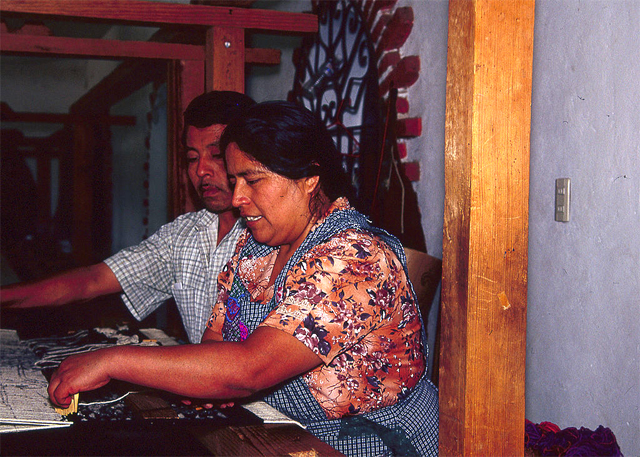The New York Times ran a news story on April 3 about the Zapotec village of Teotitlan del Valle and the fact that the community, which is famed for its artisans, has not yet reported a case of coronavirus.

The primary source of information for the indigenous people in the community to learn about the pandemic and the proper ways to help prevent it from spreading is via radio programs broadcast in Zapotec. The host for one of the Zapotec-language programs, Jose Abel Bautista Gonzalez, said it was difficult for the people to adjust to such cultural changes as the way they should greet one another on the streets.
With tourists now avoiding places like Teotitlan del Valle, the economy and people of the community are suffering. A rug seller named Froilan Mendez told the reporter that tourists are essential for the town—they purchase the crafts the Zapotec make. Mendez added, “if there are no tourists then we will not have an income.”
In Magdalena Apasco, another indigenous community in Oaxaca state, Mayor Jesus Santiago told the reporter that the approaches suggested for the people are not always understood. The Zapotec do not always appreciate the protective measures as a means of preventing an outbreak of the disease. Instead, “they take it as an abuse of authority.” A case of coronavirus had prompted community officials to close all but three access points into the village.
The mayor said that they are trying to strike a balance between protecting the community and making the people aware of what is going on.